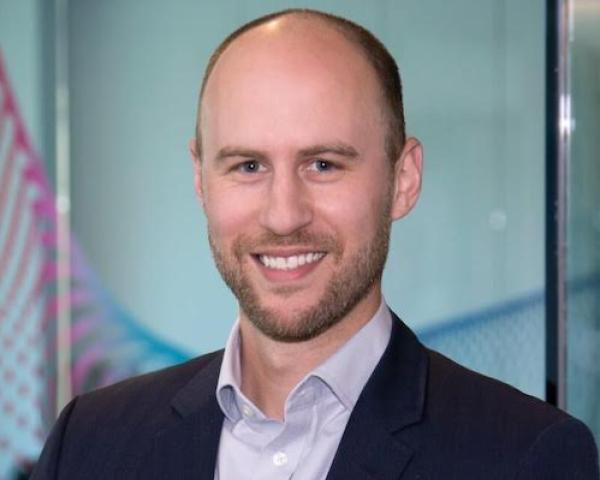KEY TAKEAWAY:
--An accident management expert can help expedite the collision claims management process to mitigate financial impacts, such as storage fees, secondary tows, rental costs and more.
----------
Managing the costs associated with an accident claim has never been more important, considering today’s challenging economic climate. Amid inflation, supply-chain disruptions and a labor shortage, auto insurers also face pressure from surging storage costs and an increasingly complex process of matching vehicles needing repair with facilities that have both the capacity and the capability to fix them. These challenges result in higher costs for insurance carriers and lengthier wait times for policyholders.
The unfortunate truth is that accident frequency and severity have been increasing over the past several years, driving up loss costs. The cost impact from this trend is even greater when policyholders delay reporting the loss to their carrier, and only 9% to 13% of policyholders report first notice of loss (FNOL) from the accident scene, according to Agero.
While some costs are unavoidable, ensuring that carriers have an active and efficient accident management program can help them save hundreds of dollars per claim and potentially cut days off a claim’s cycle time. Leveraging the assistance of specialized accident management experts can provide insight into how to improve efficiency and performance to reduce (or even eliminate) costs coming down the pike.
Let’s take a look at how an accident management expert can help improve claims management in the face of myriad industry challenges.
Navigating pitfalls and macro challenges
First and foremost, an accident management expert can help expedite the collision claims management process to mitigate financial impacts, such as storage fees, secondary tows, rental costs and more. To lessen these impacts, an accident management expert focuses on the following three areas:
1. Recovering the vehicle from the accident scene
Recovering the vehicle from the accident scene is critical to minimizing loss costs and expediting claims cycle times. However, reporting an accident to an insurer from the scene can be incredibly difficult for policyholders. The time immediately following an accident is particularly challenging, as drivers may have to manage multiple high-stress situations simultaneously. These include assessing damage to their vehicle and any other vehicles involved, triaging potential injuries and navigating what might be a dangerous situation. Given the potentially chaotic nature of the moments following accidents, it is not surprising that most drivers fail to notify their insurance carriers while still at the accident scene. The delay costs their carriers an extra $800 to $1,025, on average, per claim, according to Agero’s analysis of secondary tow costs from the first half of 2023.
See also: 5 Ways Generative AI Will Transform Claims
2. Mitigating downstream costs
Unfortunately, capturing vehicles at the accident scene is not always an option, despite best efforts. As a result, insurers and policyholders assume the additional costs of storage and secondary tows that can increase claims by hundreds of dollars above the cost of simply performing one tow from the accident scene to the desired repair shop or salvage yard. Mitigating these downstream costs is where an accident management expert can make a meaningful difference.
An expert can recommend steps to streamline the FNOL process, such as by identifying and recommending a digital FNOL option for immediate accident reporting. Digital solutions can benefit both the insurer and the policyholder. For instance, mobile telematics can automatically detect and report a crash, saving insurers hundreds of dollars in loss costs and helping policyholders report their losses from the accident scene.
An accident management expert will manage their own curated network of towers to deliver quality service at a reasonable cost, especially when compared with inflated retail or police tow rates. As a bonus, an accident management expert can provide real-time updates so the policyholder isn’t left in the dark about when the tow truck will arrive.
3. Combatting body shop refusals
Body shop refusals have been a growing problem since the start of the pandemic, increasing by 187% in 2022 over the prior year, and are on track to increase an additional 34% in 2023 per Agero research. These refusals have resulted in additional tows because, once a vehicle is towed to a shop and refused, it must then be towed back to storage until another shop has availability. Each refusal results in additional tows back to storage and to the new repair destination. This leads to extended storage time and costs and increases the time that a policyholder is without their vehicle.
An accident management expert can provide critical relief by working with insurers on how they interoperate with their body shops to mitigate these challenges and break the cycle of refusals. For instance, an accident management expert can help insurers analyze body shop refusal rates, identify regional trends and potentially manage direct repair program shops that are refusing vehicles in violation of their carrier agreements.
Findings may show that a few pre-dispatch confirmations by an insurance associate can help avoid a refusal. This information can inform best practices for confirming a shop’s capacity and determining which jobs they’re capable of repairing. As a result, agents can select the best body shop for the job and reduce the chances of a vehicle being refused, resulting in quicker repairs for the policyholder.
See also: Insurtech Is at an Inflection Point
There’s never been a better time to partner with an accident management expert
An accident management expert can serve as a vital resource by helping to streamline the process, identify unknowns (such as the impact of rising primary tow rates) and foster collaboration among all parties.
The confluence of industry challenges from inflation and rising costs, labor and parts shortages and increased volume of accidents makes it incredibly difficult for insurers to independently address the impact these issues have on collision claims. However, by doing their part to keep costs down and wait times low, an accident management expert can help make these events more seamless for all parties involved.






